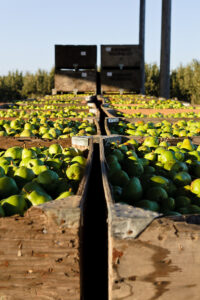Why is the Delta Important?

It is a unique natural resource of local, state, and national significance and possesses a distinct natural, agricultural, and cultural heritage.
It provides water to about 27 million Californians and millions of acres of agricultural land.
It hosts one of the largest estuaries on the West Coast of North and South America. The Suisun Marsh is the largest contiguous brackish water marsh on the West Coast of North America and a critical part of the Bay-Delta estuary system.
It is home to more than 750 species of plants and wildlife, including 55 species of fish.
It provides migratory waterfowl an important stop on the Pacific Flyway (one of the major North American migration routes for birds).

It contains more than 500,000 acres of agricultural land that provides food for worldwide distribution.
It is home to more than 600,000 people who live in the dozens of communities throughout the Delta.
It is a world-class recreational destination that attracts about 12 million visitors per year.
In 2019, Congress designated the Sacramento-San Joaquin Delta National Heritage Area as California’s first National Heritage Area. The designation is granted to places where natural, cultural, historic, and recreational resources combine to form a distinctive landscape and tell a nationally important story about the country and its experience.

